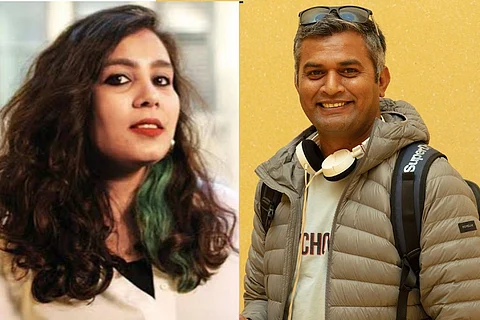

Days after Coming Out as Dalit author Yashica Dutt accused filmmaker Neeraj Ghaywan of appropriating her story for an episode in the popular web series Made in Heaven and sought formal credit for her contribution, makers of the show took to social media on Thursday, August 16, to state that they were “deeply disturbed” with the “misleading reports and comments.” They went on to cite several Dalit authors whose works have inspired the episode, including Yashica Dutt, Sujatha Gidla, Suraj Yengde, and Sumit Baudh. Notably, however, in a previous post Neeraj shared on Instagram, he had specifically mentioned Yashica as an inspiration for a scene that forms a crucial part of the episode.
In the joint statement, Zoya Akhtar, Reema Kagti, Alankrita Shrivastava, and Neeraj Ghaywan said that Made in Heaven is a show set around wedding planners and “remarkable brides who challenge prejudices deeply ingrained in our society,” adding that the fifth episode 'The Heart Skips A Beat', which Neeraj directed, peeked into the life of a fictional character Pallavi Menke.
“Pallavi Menke is a Maharashtrian Ambedkarite from the Vidarbha region who studied law at Columbia University. She grew up using a caste-neutral surname and was called Pallavi Kumar. She has now reclaimed her original surname, Menke - a signifier of her true identity as a member of the Dalit community. Pallavi Menke is an academic who teaches at Columbia and is likely to be tenured as a professor. She is a recipient of an Amnesty Award. All of this earns her the respect of her prospective in-laws, who belong to a different caste. At the same time, her in-laws think her identity as a Dalit is better brushed under the carpet,” the statement read.
The makers added that the central conflict of the episode is whether Pallavi should fight to have the wedding rituals that are a signifier of her identity, or not. “None of the above is drawn from Yashica Dutt's life or her book - 'Coming Out As Dalit'. We categorically deny any claim that Ms. Dutt's life or work was appropriated by us. 'Coming out' is a 1950's academic LGBTQIA term that was first used by Mr. Sumit Baudh in the Indian caste identity context in 2007. He used this in an article he wrote for Tarshi. A decade later it was used by Ms. Dutt in her book. This term has since become common parlance for reclaiming caste-identity,” they said.
“In the episode, the character, Pallavi Menke simply uses it in this context. The character does not attribute herself and neither has she been attributed with coining this term or being the pioneer of its usage in a Dalit context,” they added.
However, Neeraj Ghaywan, in an earlier post, had thanked Yashica saying that her book Coming Out as a Dalit “made the term ‘coming out’ become part of the popular culture lexicon for owning one’s own Dalit identity”. He further said that it “inspired Pallavi’s interview section in the episode”.
Further citing Pallavi Menke’s grandmother's back story, which Yashica had pointed out to be parallel to that of her own grandmother, the makers said, “This narrative of cleaning toilets was included because it is a common history that came up recurrently in our research of the community. Pallavi Menke's fictional book, "Denied" is a hat-tip to several books like Ants Among Elephants by Sujatha Gidla, Caste Matters by Suraj Yengde, Coming Out As Dalit by Yashica Dutt and the Tarshi article by Sumit Baudh. We have immense respect for them and their experiences and their work that has admirably shed light on caste based discrimination.”
The show’s makers added in the statement that through his previous work and this episode, Neeraj Ghaywan himself had added to the discourse. “We made this show with sincerity, passion and a beating heart and are overwhelmed with the love we have received. We will continue to platform stories and voices that are truly bigger than us,” they added.
— Neeraj Ghaywan (@ghaywan) August 17, 2023
Yashica, a Dalit writer from Bhangi community, had on Monday shared a long statement on her social media accounts, about the show’s makers unauthorisedly using her life story in Episode 5, and demanded that due credits were given to her. “Let's acknowledge the Dalit labor and set a precedent for giving credit where it's due instead of the now common practice in the streaming world of ‘taking it without permission first, apologizing later’. THIS is what coming out as Dalit really looks like,” Yashica wrote.
Watch: Made in Heaven 2 controversy: Yashica Dutt accuses filmmakers of appropriation